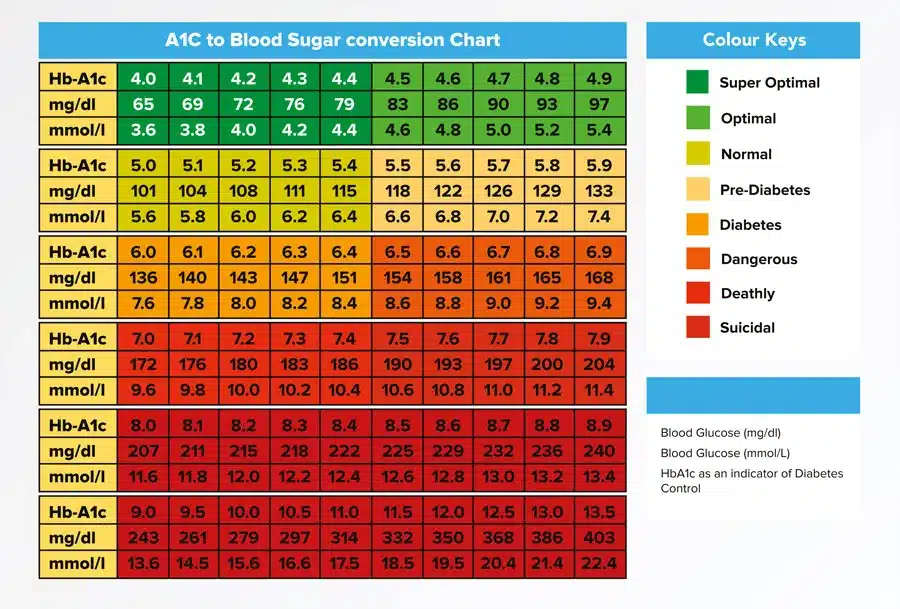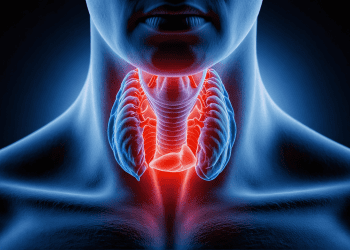Diabetes symptoms mellitus may sound like a daunting medical term, but it’s a condition that affects millions of people worldwide. It’s a chronic metabolic disorder that impacts how our bodies process glucose, which is the primary source of energy for our cells.
When this process goes awry, it can lead to a variety of health complications. But fear not! In this article, we’ll delve into the ins and outs of diabetes, including its symptoms, causes, and prevention and management strategies.
So, grab a cup of tea and get ready to learn more about this common yet complex condition.
| Key Takeaways |
| Diabetes is a chronic metabolic disorder that affects the body’s ability to produce or use insulin, leading to high blood glucose levels. |
| Symptoms of diabetes include frequent urination, excessive thirst, overwhelming confusion, stomach pain, weakness, and shortness of breath. |
| Diabetes can be prevented or managed through lifestyle changes and medical treatment, including maintaining a healthy body weight, staying physically active, eating a healthy diet, and managing blood sugar levels, blood pressure, and cholesterol levels. |
| People with diabetes should visit their doctor regularly to check their blood pressure and weight, and to review their self-care plan and medicines. |
| Complications of diabetes can be prevented or delayed through proper management of blood sugar levels, blood pressure, and cholesterol levels. |
| Medical treatment for diabetes may include insulin therapy, oral medications, and other medications to manage blood sugar levels and prevent complications. |
Types of Diabetes
There are three main types of diabetes: type 1, type 2, and gestational diabetes. Type 1 diabetes can develop at any age, but it occurs most frequently in children and young adults. It is an autoimmune disease in which the body’s immune system attacks and destroys the insulin-producing cells in the pancreas.
Type 2 diabetes is the most common form, representing 90% to 95% of all diabetes cases. It usually develops in adults, but it can occur at any age. Gestational diabetes occurs during pregnancy and usually goes away after the baby is born. Prediabetes is a condition in which blood sugar levels are higher than normal but not high enough to be diagnosed as diabetes.
Diabetes Symptoms
Symptoms of diabetes can vary depending on the type of diabetes.
Type 1:
- Increased thirst
- Frequent urination
- Bedwetting in children who previously didn’t wet the bed
- Extreme hunger
- Unintended weight loss
- Fatigue and weakness
- Blurred vision
- Irritability
- Other mood changes
Type 2:
- Increased thirst and frequent urination
- Blurred vision
- Fatigue and weakness
- Slow healing of wounds or infections
- Numbness or tingling in the hands or feet
- Dark patches on the skin (acanthosis nigricans)
- Erectile dysfunction in men
In Type 1 diabetes, symptoms may develop quickly, while in Type 2 diabetes, symptoms may be gradual and may go unnoticed. Children are at a higher risk of developing Type 2 diabetes due to obesity and a sedentary lifestyle.

Causes of Diabetes
Diabetes is a chronic medical condition that occurs when the level of glucose (sugar) in your blood becomes too high. It happens when your pancreas doesn’t produce enough insulin or when your body is unable to use insulin effectively, which can lead to an excess of sugar (glucose) in the bloodstream.
Insulin is a hormone responsible for managing blood sugar levels and facilitating glucose absorption and storage for energy use. Diabetes impacts the way your body processes food for energy, and it is a long-term medical condition.
Risk Factors for Diabetes
There are several risk factors for diabetes, including genetics, obesity or being overweight, physical inactivity, and family history. Diabetes symptoms of Type 1 diabetes are thought to be caused by an immune reaction, and the risk factors for Type 1 diabetes are not as clear as for prediabetes and Type 2 diabetes.
Known risk factors for Type 1 diabetes include family history and exposure to certain viruses. Prediabetes is a milder form of diabetes, and the risk factors for prediabetes, which may lead to diabetes symptoms, include being overweight, physically inactive, having a parent, brother, or sister with Type 2 diabetes, and have ever had gestational diabetes or having given birth to a baby who weighed over 9 pounds.
Other risk factors for Type 2 diabetes, which may also present diabetes symptoms, include smoking, gestational diabetes, heart attack or stroke, polycystic ovary syndrome (PCOS), and mental health conditions. Age, race/ethnicity, and gestational diabetes are also risk factors for Type 2 diabetes.
Complications of Diabetes
If left uncontrolled, diabetes can lead to long-term complications such as:
- Heart disease
- Chronic kidney disease
- Nerve damage
- Problems with feet, oral health, vision, hearing, and mental health
- Kidney disease (diabetic nephropathy)
- Nerve disease (diabetic neuropathy)
- Eye disease
- Blindness
- Kidney failure
- Non-traumatic amputation of the toes, feet, or legs
Managing blood sugar levels through lifestyle changes and regular medical follow-up is essential to reduce the risk of complications.

When to See a Doctor
It is important to consult a doctor if you have symptoms of diabetes or are at risk of developing the condition. Common symptoms of diabetes include frequent urination, excessive thirst, confusion, stomach pain, weakness, and shortness of breath.
If you experience high blood sugar levels consistently throughout the day, notice your blood sugar level is always high at the same time each day, or have symptoms of high blood sugar such as increased thirst or urination, you should contact your doctor.
If you have developed complications of diabetes, such as issues with the eyes, kidneys, or nerves, it’s recommended to see a specialist. Additionally, if you have diabetes, it’s advisable to visit your doctor every six months to monitor your blood pressure and weight, review your self-care plan, and assess your medications.
Prevention and Management
Diabetes can be prevented or managed through lifestyle changes and medical treatment. To prevent type 2 diabetes and its complications, people should maintain healthy body weight, stay physically active with at least 30 minutes of moderate exercise each day, eat a healthy diet, and avoid sugar and saturated fat.
Losing extra weight, being more physically active, eating healthy plant foods, and avoiding bad carbohydrates are some of the lifestyle changes that can help prevent the onset of type 2 diabetes. For people with diabetes, proper management of blood sugar levels, blood pressure, and cholesterol levels are essential to prevent or delay complications.
Exercise also plays an essential role in diabetes management. Medical treatment for diabetes may include insulin therapy, oral medications, and other medications to manage blood sugar levels and prevent complications.
Final Thoughts
Diabetes is a serious and potentially life-threatening condition that affects millions of people worldwide. It is important to recognize the diabetes symptoms and take action to prevent or manage the condition through lifestyle changes and medical treatment.
By maintaining healthy body weight, staying physically active, eating a healthy diet, and monitoring blood sugar levels, people with diabetes can significantly reduce their risk of complications and lead a healthy and fulfilling life.
It is also essential to see a doctor regularly and work closely with healthcare professionals to manage the condition effectively. With the right care and support, people with diabetes can live happy and healthy life.
So, don’t hesitate to take action and make the necessary changes to prevent or manage diabetes.
Frequently Asked Questions
Q: What is diabetes?
A: Diabetes is a chronic condition that affects the body’s ability to produce or use insulin, which is essential in regulating blood sugar levels.
Q: What are the types of diabetes?
A: There are two main types of diabetes: Type 1 and Type 2 diabetes. Prediabetes and gestational diabetes are also potentially reversible diabetes conditions.
Q: What are the symptoms of diabetes?
A: The symptoms of diabetes can vary depending on blood sugar levels. High blood sugar levels can cause increased thirst, frequent urination, blurred vision, and fatigue. In Type 1 diabetes, symptoms may develop quickly, while in Type 2 diabetes, symptoms may be gradual and may go unnoticed.
Q: What are the causes of diabetes?
A: The exact cause of diabetes is unclear, but it is thought to be a combination of genetic and environmental factors. The role of insulin and glucose in the body is also essential in understanding the causes of diabetes.
Q: What are the risk factors for diabetes?
A: Family history and genetics, environmental factors, geography, race or ethnicity, obesity, and being overweight are some of the risk factors for diabetes.
Q: What are the complications of diabetes?
A: The most common complications of diabetes include heart disease, chronic kidney disease, nerve damage, and problems with feet, oral health, vision, hearing, and mental health. Proper management of blood sugar levels and other health factors can prevent or delay these complications.
Q: When should I see a doctor?
A: It is important to see a doctor if you experience symptoms of diabetes or if you are at risk of developing diabetes. Early diagnosis and regular medical follow-up can help prevent and manage diabetes and its complications.
Q: Can diabetes be prevented or managed?
A: Yes, diabetes can be prevented or managed through lifestyle changes such as regular exercise, healthy eating, and weight management. Seeking medical advice and support is also crucial in preventing or managing diabetes and its complications.












